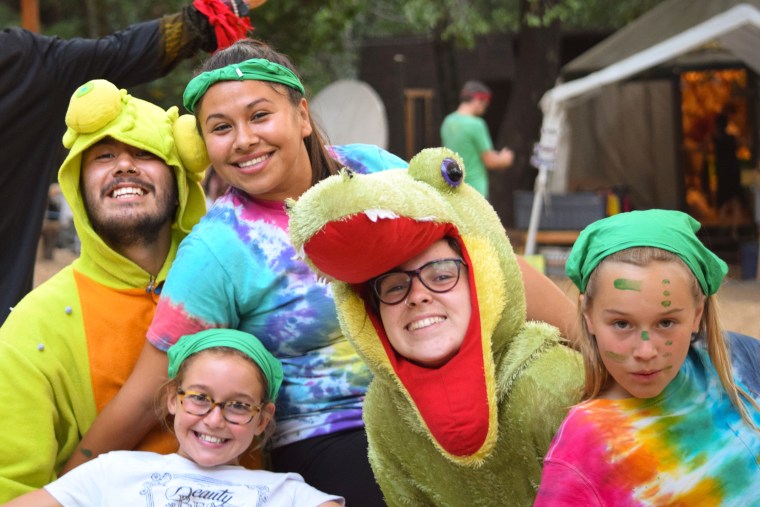This year, Camp Augusta, an overnight camp in Nevada City, California, has more than 500 campers on its waitlist — the longest the list has been in two decades. Parents who a couple months ago were inquiring about how often equipment will be sanitized now are more interested in how Augusta plans to make camp feel as normal as possible, the director, Randy Grayson, said.
And campers have made clear what they are hoping for: a summer free from worries about the coronavirus pandemic.
“Nearly all of them mention the impact of Covid on their lives and how they’re looking forward to the opposite of it,” Grayson said. “They mention how they’re excited for the summer and to be with their friends, having fun outside, and effectively, Covid not existing in their lives.”
To make that happen, Camp Augusta, which did not operate last summer due to restrictions imposed by the state, is requiring all counselors to get Covid-19 vaccinations. Campers will be tested for Covid-19 before they arrive, upon arrival and early on in their stay. Parents will not be permitted to come for a visitors’ day.
Similar measures are being instituted at camps across the country, which are finding that as the pandemic nears its second summer, there is overwhelming interest from prospective families, a stark change from last year.
Emboldened by lessons learned from the smattering of camps that operated last summer and from schools that opened in-person over the past year, camp directors say they are able to offer clear-cut plans for keeping campers safe — at a time when cooped-up kids, and their burned-out parents, are more eager than ever for a change in routine.
Many parents were too nervous to send their children to camp last year and some states prohibited camps from opening at all, resulting in only about 18 percent of overnight camps operational in 2020, according to the American Camp Association. About 60 percent of day camps were open.
But for this summer, camp directors from Connecticut to California told NBC News that not only are they open, they also have booming waitlists.
At Camp Augusta, the waitlist is more than double what it has ever been in Grayson’s 19 years as director there. He believes as parents learned more about how rare outdoor transmission of Covid-19 is, they flocked to sign their kids up for camp. A year of remote learning has likely also pushed parents — and children — to their breaking points, he said.
“Children need this experience,” Grayson said. “Their life is school. Yes, they need reading, writing and arithmetic and all that good stuff, but the social element is the wonder of childhood and what people remember.”
Each year, campers write letters to Camp Augusta staff sharing what they are most excited to do once summer arrives, Grayson said. The pandemic’s effect plays an outsize role in this year’s letters.
“It’s so similar what they’re saying: I get to hug my friend, I get to play with them, to see their eyes,” he said. “Because you can’t really make out the nuances in someone’s eyes through a screen.”
The safety measures that will be in place
Last summer offers successes as well as cautionary tales.
At a Georgia overnight camp that did not require campers to wear masks, 260 children and staff were infected with the coronavirus.
Others were able to operate safely. North Star Camp for Boys, an overnight camp in Hayward, Wisconsin, hosted campers for seven weeks without a single case of the coronavirus.
“You do everything you can to keep Covid out, and you plan as if it’s coming anyway.”
“You do everything you can to keep Covid out, and you plan as if it’s coming anyway,” said Andy Shlensky, the director of North Star and owner and managing partner of The Road Less Traveled, a community service and adventure travel company for teens.
His camp made a number of changes, such as moving meals from the indoor dining hall to picnic tables outside; same with its arts and crafts shop, one of the only other parts of camp besides cabins previously indoors.
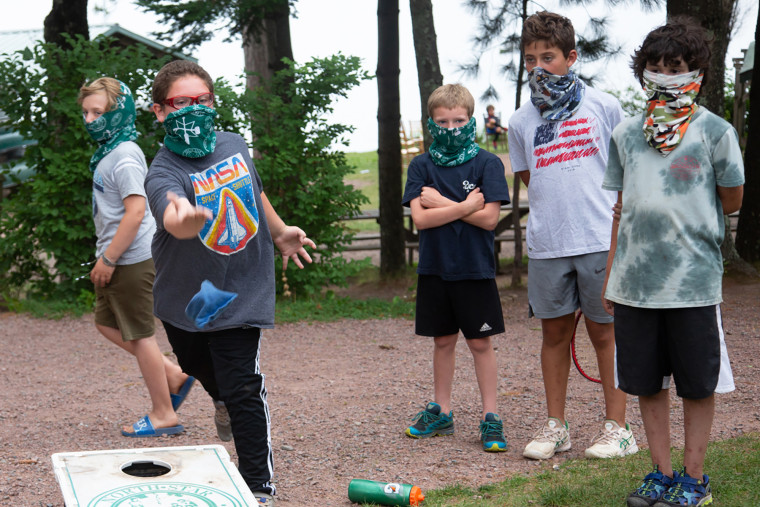
Dr. Julie Rothschild, an emergency medicine physician in Chicago, has sent her two sons to North Star for years and said they enjoyed themselves as much as ever last year.
“They had the privilege of having an almost normal summer,” she said.
There are a slew of safety guidelines written for camps on the state and local level, as well as detailed federal safety recommendations from the Centers for Disease Control and Prevention.
The CDC’s camp guidance, released in April, encourages outdoor activities, mask-wearing and spacing out campers whenever possible, mitigation measures that proved successful last year.
“This year, we also have vaccines. It’s another layer of protection. And testing is more widely available in many situations,” said Tom Rosenberg, president and CEO of the American Camp Association, which has its own field guide created jointly with the YMCA of the USA for safely operating camps.
Campers should be kept in cohorts, or small groups, with 3 feet between kids, the CDC says, unless they are eating, drinking or otherwise unmasked, in which case there should be 6 feet between them. Overnight camps should request that campers quarantine for two weeks prior to arrival. The guidance also recommends strongly encouraging all counselors and staff to be vaccinated.
The CDC calls for campers 2 and older to wear masks even when outside, which Dr. Anthony Fauci, the nation's top infectious diseases doctor, acknowledged Wednesday to TODAY was "a bit strict, a bit stringent." He said he anticipated the CDC would be "continually re-evaluating that for its practicality."
Dr. Sara Bode, one of the authors of the American Academy of Pediatrics’ camp guidance and the incoming chair of the Council on School Health, suggested parents ask camps about their safety protocols ahead of time, including how they plan to respond if anyone displays potential symptoms of Covid-19.
And while campers under the age of 12 will not likely have the option to be vaccinated in time for summer, Bode said with other strategies in place, that should not be a source of concern.
Both day and overnight camps have their own safety risks and benefits, she added.
“I don’t think one is more safe than the other,” she said. For overnight camps, campers are more likely to have close contact with their cabinmates, but with testing and quarantining before camp starts, they can help reduce the risk of Covid-19 entering camp.
"A lot of camps are going to maximize outdoor time, thankfully.”
In day camps, meanwhile, there is likely less prolonged proximity to other campers, Bode said, but unlike the bubble that is created in an overnight setting, campers at day camp may be mingling with other people outside of camp.
“I think you can do that safely, just like we did in school settings,” she said. “And a lot of camps are going to maximize outdoor time, thankfully.”
Challenges that camps face
Getting ready for the 2021 summer season has not been without challenges.
Many camps have had to raise their tuition prices to account for extra costs incurred by new safety protocols and to make up for a lost summer last year. At Geneva Glen Camp, an overnight camp for kids ages 6 to 16 in Indian Hills, Colorado, the price went up about 8 percent this year, said Geneva Glen’s director, Casey Klein.
“I estimate we will spend $35,000 to $40,000 on the extra stuff. For a not-for-profit, that’s a lot of money,” Klein, who is also president of the Colorado Camps Network, said.
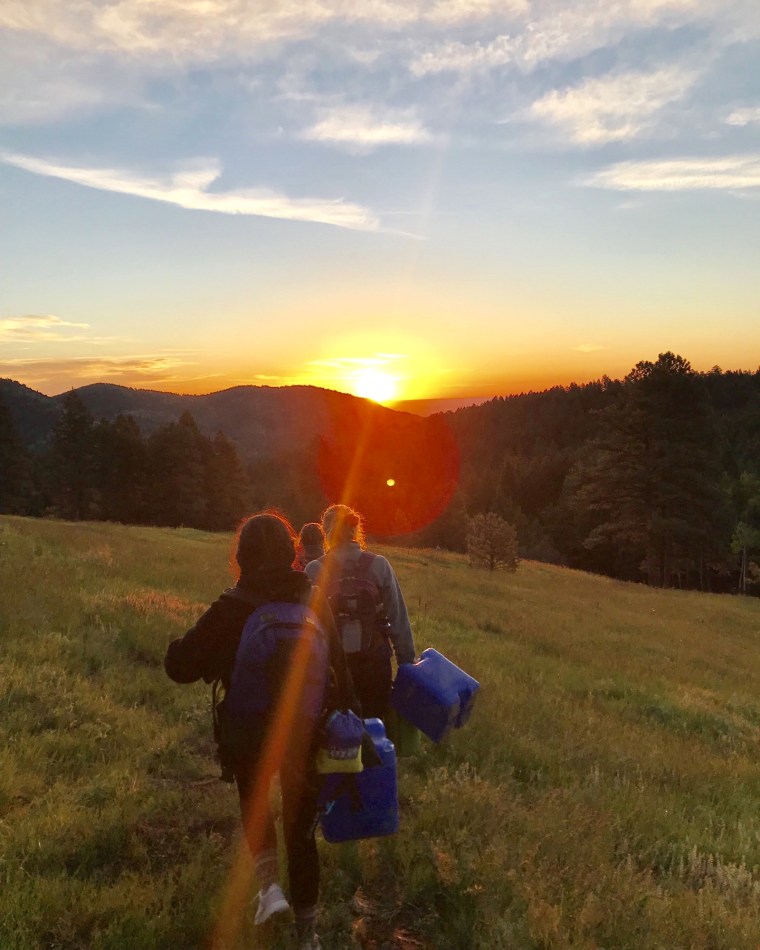
Geneva Glen is dedicated to being equitable nonetheless, Klein said. Each year, the camp gives about 80 scholarships to families who could not otherwise afford to send their children, and this year is no exception.
Pediatricians encourage efforts to give all children the opportunity to go to camp, not just those who have the means to enroll. Some places, such as New York City, are offering free summer programs for kindergarten through eighth graders; in Connecticut, Gov. Ned Lamont has proposed up to $11 million in funds to expand access to summer enrichment activities.
Finding counselors has also proven difficult for some camps. Many rely on the J-1 summer visa program that enables foreign students to come to the United States as camp counselors, and travel bans and embassy backlogs have posed a problem.
Others, such as Winding Trails Summer Day Camp in Farmington, Connecticut, have found that prospective counselors are just now solidifying their plans for the summer, from college internships to family vacations, said Keith Garbart, Winding Trails’ camp director. At Camp Augusta, the California overnight camp, requiring vaccinations among counselors has turned off some applicants, director Grayson said. (Many other camps are encouraging, but not requiring, counselors to be vaccinated.)
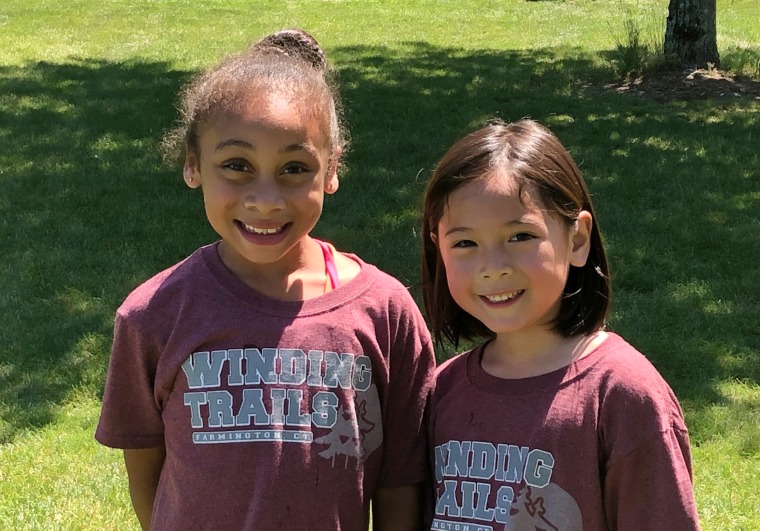
But making camp fun while adhering to Covid-19 protocols is not one of the obstacles camp directors are worried about. Winding Trails operated last summer and found some unexpected social benefits to incorporating new safety guidelines.
“I think it was one of our best summers ever, because campers got to connect with smaller groups and their counselors,” Garbart said. “They were their own little family unit.”
That kind of connection is what Misty Gregg, an internal auditor in Fremont, California, is hoping for her children. Her son and daughter did not go last summer, and this year, they will go to overnight camps. Both have been doing remote schooling since March 2020, and her son, Torin, 12, has been holed up in his room most of the time, between virtual classes and playing Minecraft.
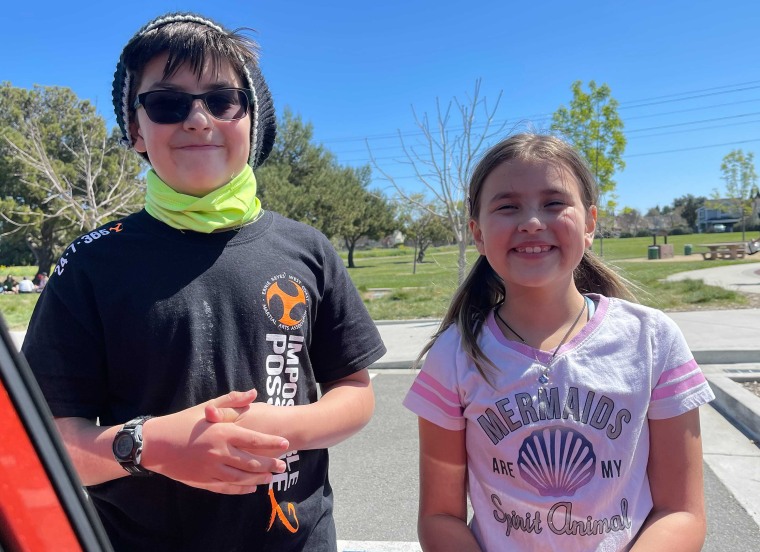
“I just want him to want to go outside more,” she said. “Camp has a no-electronics policy. I hope he would come home and realize that ‘I don’t have to do this every day. I can go out and play.’”
Grayson hopes his camp will offer kids a mental break from the pandemic, as well as a safe place to discuss how it has affected them.
“There is no element of childhood that hasn’t been touched by this,” he said. “There’s no chance that Covid is not going to be something that they’re wanting to process.”
